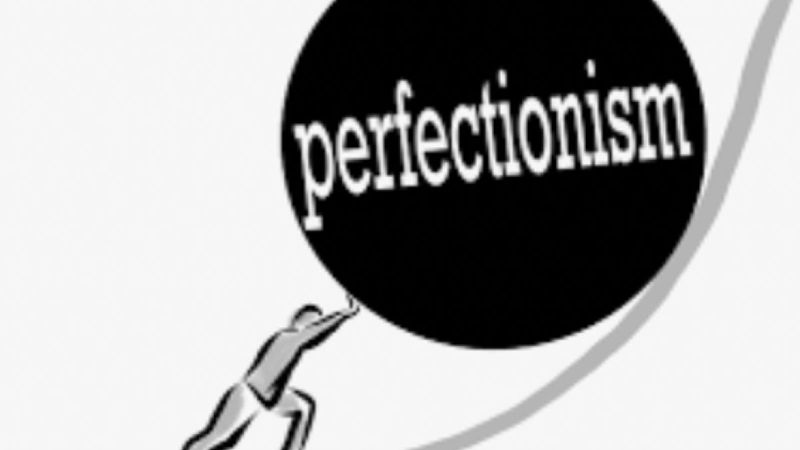Perché surviving childhood adversity changes you — in ways both visible and hidden. A difficult childhood — marked by emotional neglect, instability, abuse, or a lack of safety — doesn’t just vanish when you become an adult.
It reshapes how you see the world, how you love, how you trust, and how you show up in your own life. You may not even realize it, but those early days have a way of echoing through your choices, relationships, and even the way you talk to yourself.
Sometimes it’s in tiny ways—like flinching at a loud voice—or in bigger patterns, like always expecting the rug to get pulled out from under you.
The good news? Noticing these traits is the first step toward healing. According to psychologists, here are 15 common traits adults may develop as lasting echoes of early adversity:
1. Hyper-Independence
Ever catch yourself saying, “I got it,” even when your arms are full and you’re about to drop everything? That fierce refusal to ask for help isn’t just stubbornness. For those of us who grew up feeling let down, it’s a survival strategy that stuck.
Carrying your own load—emotionally and physically—became the norm. Relying on others feels like rolling the dice, so you handle things yourself, even when you’re secretly exhausted. Pride and self-preservation get tangled together, and vulnerability starts to look like a luxury you can’t afford.
It’s empowering in small doses, but the downside? You can end up feeling isolated, even in a crowded room. Accepting support isn’t weakness; it’s a new kind of strength, one you absolutely deserve to try on for size.
2. People-Pleasing
If you’ve ever found yourself nodding along to something you don’t agree with, welcome to the people-pleasers club. Approval wasn’t just nice—it was how you stayed safe, especially when home felt unpredictable. So now, keeping the peace sometimes feels like a full-time job.
You might sacrifice your own needs just to avoid a raised eyebrow or a cold shoulder. Even small decisions—where to eat, what movie to watch—can spark an internal debate: is it worth upsetting anyone?
Sure, kindness is beautiful, but not when it erases you. Boundaries are your birthright, not a luxury. The trick is learning to set them without feeling like the villain. It’s okay to let your own needs have a seat at the table.
3. Difficoltà a fidarsi degli altri
Trust is supposed to be a soft place to land, but for you, it can feel like stepping onto thin ice. When caregivers were unpredictable or even dangerous, mistrust became second nature. Even good, well-meaning people can make you bristle with suspicion.
You might find yourself double-checking motives, waiting for the other shoe to drop. It’s not that you want to be cynical—it’s just that experience taught you to be careful.
Letting someone in doesn’t happen overnight. Building trust as an adult may feel awkward and slow, but every tiny step counts. It’s okay to protect yourself, but don’t forget you deserve genuine connection, too.
4. Over-Attunement to Others’ Emotions
Reading the room isn’t just a skill—it’s an art form you perfected out of necessity. Growing up guessing how people would react gave you a sixth sense for tension, irritation, or sadness. Sometimes, you’re so tuned in to others, you forget to check in with yourself.
You spot a frown before a word is spoken, or you sense when someone’s upset before they say a thing. It can make you an incredible friend and coworker, but it’s also draining to always be on high alert.
The challenge? Learning to notice your own needs just as quickly. Your empathy is a gift, but it shouldn’t come at the cost of your peace of mind.
5. A Deep Fear of Abandonment
Closeness can feel like a game of musical chairs—you’re never sure when the music will stop and someone will leave. Conditional love in childhood makes you crave reassurance in adulthood, sometimes chasing affection or pulling back before you can get hurt.
That fear of being left can lead to clinging, overthinking texts, or even sabotaging things before someone else gets the chance. It’s exhausting to ride that rollercoaster over and over.
Learning to soothe that fear takes time. Surround yourself with people who reassure with actions, not just words. And give yourself a little grace—your need for security is a sign of your capacity to care deeply.
6. Struggles with Emotional Regulation
When nobody ever taught you how to handle big feelings, it’s no wonder they sometimes show up like a tidal wave. You might swing between emotional outbursts and feeling totally numb, not sure how to land somewhere in the middle.
Those meltdowns or shutdowns aren’t failures—they’re the body’s way of coping with what was never modeled for you. Maybe anger feels scary, or tears seem pointless, so you bottle it all up until it spills.
Learning to name and process emotions is like decoding a secret language. Take it slow, and remember: feeling things deeply is not a flaw—it’s a sign you’re alive and human.
7. Chronic Self-Doubt
Second-guessing yourself isn’t indecisiveness—it’s a story written by years of having your feelings dismissed. You learned to question if your experiences were valid, or if you were just being “too sensitive.”
Now, every choice comes with a chorus of inner critics, replaying old scripts. Even when you know you’re capable, it’s hard to shut out the noise.
Self-doubt can be a heavy shadow, but it’s not permanent. The more you challenge those old messages and trust your gut, the more room you make for confidence to grow. Your voice matters, even when it shakes.
8. Strong Need for Control
Order isn’t just a preference—it’s a lifeline. When childhood felt chaotic, you became the queen of control, trying to create safety wherever you could. If every detail is managed, maybe nothing will sneak up and hurt you.
You color-code, double-check, and organize until the world almost feels predictable. But perfection comes at a price: exhaustion, anxiety, and sometimes a sense of missing out on the messier, spontaneous parts of life.
Loosening your grip isn’t easy, but a little unpredictability can be freeing. Trust that you’ll handle whatever comes, even if it doesn’t all go according to plan.
9. Difficulty Accepting Love or Praise
Compliments make you squirm. Someone says something kind, and you immediately question their motives or brush it off like it’s no big deal. Growing up, affection may have come with strings attached—love was earned, not freely given.
So when someone genuinely cares, it feels suspicious, even foreign. Your reflex is to deflect or make a joke to hide the discomfort.
But here’s the truth: you are worthy of kindness, just as you are. Accepting love and praise doesn’t mean you owe anyone anything. It’s okay to let those words land, even if it feels strange at first.
10. Perfezionismo
Perfectionism isn’t about high standards—it’s about believing that if you never mess up, maybe you’ll finally be enough. Every error feels like proof you’re unlovable, so you triple-check everything, terrified of letting anyone down.
Mistakes don’t just sting—they haunt you, replaying in your head for days. You chase unattainable ideals, hoping for safety or acceptance that never quite comes.
You are allowed to be imperfect. Messing up doesn’t erase your value; it just proves you’re human. Sometimes, good enough is more than enough.
11. Deep Empathy (Sometimes to Your Own Detriment)
Your heart feels everything—sometimes too much. You can spot another person’s hurt from across the room and feel compelled to help, even at your own expense. That sensitivity was forged by your own pain, making you an incredible listener and friend.
But empathy can morph into over-giving. You carry everyone else’s burdens, leaving your own needs out in the cold. Sometimes it feels easier to rescue others than to tend to yourself.
It’s brave to care so deeply, but don’t forget: it’s okay to put yourself first sometimes. Your compassion is powerful, but it shouldn’t leave you running on empty.
12. Paura del conflitto
Arguments used to mean danger—raised voices, slammed doors, or worse. Now, just the idea of conflict can turn your stomach into knots. You’d rather stay silent than risk a fight, even when something really matters to you.
You might replay conversations, wishing you’d spoken up, but the fear of confrontation wins out. Peace feels safer than honesty, but it costs you your voice.
Bravery doesn’t always roar. Sometimes it’s a whisper: “This matters to me.” Speaking your truth won’t break the world, but it might just set you free.
13. Attachment Confusion
Love is both a lifeline and a minefield. One minute, you’re desperate for closeness; the next, you’re pulling back, terrified of getting hurt. Childhood upheaval taught you that connection can turn on a dime.
You might find yourself testing partners, pushing them away, then panicking when they retreat. The push-pull leaves you dizzy, but you can’t seem to stop.
Healthy attachment isn’t about being perfect—it’s about learning to tolerate the messy, uncertain parts of intimacy. Give yourself grace for the confusion, and know that safe love is possible, even if it takes time to trust it.
14. A Tendency to Minimize Your Trauma
You’re the master of the casual brush-off. No matter how rough things were, you compare your struggles to others’ and decide yours don’t “count.” Minimizing your pain made it easier to survive, but it keeps you stuck in silence.
Jokes or dismissive comments hide the ache underneath. Admitting what happened feels scary—like opening a door you’ve kept locked for years.
Your feelings are real, even if someone else had it “worse.” Giving voice to your pain is not weakness; it’s courage. You deserve understanding, including from yourself.
15. Resilience With a Quiet Ache
Everyone sees your strength—the one who always gets up, keeps moving, handles whatever comes. But not everyone sees the quiet ache underneath, the loneliness or longing that never fully fades.
You learned to power through, to turn pain into productivity. That toughness is real, but sometimes it’s just armor, worn out of necessity.
Resilience is beautiful, but you don’t have to do it all alone. Letting someone see the ache doesn’t erase your strength. In fact, it might be the bravest thing you ever do.
















